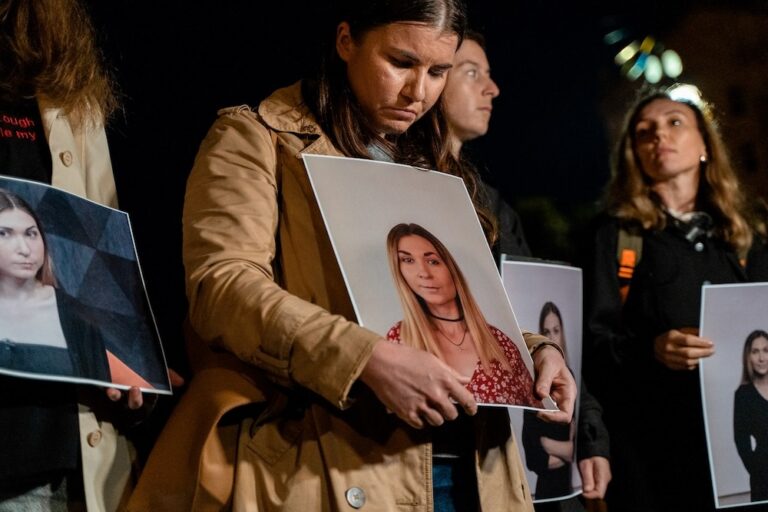Chancellor Angela Merkel of Germany should urge President Vladimir V. Putin of Russia to end the crackdown on his country’s civil society, Human Rights Watch said today. Since May, Russia’s parliament has adopted a series of laws that impose restrictions on freedom of expression and funding for civil society groups.
(Human Rights Watch/IFEX) – 14 November 2012 – Chancellor Angela Merkel of Germany should urge President Vladimir V. Putin of Russia to end the crackdown on his country’s civil society when the two leaders meet on November 16, 2012, Human Rights Watch said today. Merkel and Putin will meet at the conclusion of two days of broad-ranging consultations between the German and Russian governments.
“There has never been a more important time to put human rights front and center of Germany’s relationship with Russia,” said Hugh Williamson, Europe and Central Asia director at Human Rights Watch. “That relationship should be grounded in Russia’s development of the rule of law, which the Kremlin has been steadily and blatantly undermining for the past six months.”
On November 9, the German Bundestag adopted a resolution expressing alarm at the crackdown on Russian civil society since Putin returned to the presidency in May, including the spate of laws introducing new, serious restrictions on freedom of expression, association, and assembly. The Bundestag called on the German government to urge Russia to adhere to its international human rights obligations.
“The Bundestag’s resolution was strong and clear,” Williamson said. “Now it’s up to Chancellor Merkel to do what the resolution urges and raise these concerns in a clear, public way in her talks with Putin this week. Germany should also ensure the EU takes a similarly strong stance at its summit with Russia next month.”
Since Putin’s return to the presidency in May, Russia’s parliament adopted a series of laws that imposed new restrictions on public assemblies and raised relevant financial sanctions to the level of criminal fines, re-criminalized libel, and imposed new restrictions on internet content.
A particularly problematic law adopted in July forces nongovernmental organizations that engage in advocacy work and accept foreign funding to register as “foreign agents,” a move Human Rights Watch said aimed to demonize nongovernmental organizations in the public eye. Another law, adopted in October and awaiting Putin’s signature, expands the definition of “treason” in ways that could criminalize international human rights advocacy.
Against this backdrop, government statements that criticize nongovernmental organizations and foreigners are on the rise. Smear campaigns in state-run and pro-Kremlin outlets have targeted prominent nongovernmental groups. Officials in several regions have warned civil servants and others not to cooperate with representatives of foreign organizations and foreign-funded domestic groups.
“The legal crackdown creates a huge grey area of legal ambiguity for civil society to make activists vulnerable to prosecution and to re-instill fear and distrust among people whose Soviet-era instincts had largely faded,” Williamson said. “Chancellor Merkel needs to tell Putin that this is out of line with Russia’s international commitments, with the kind of partnership Germany and Russia is supposed to share, and with the kind of role Russia seeks in the international arena.”
Human Rights Watch urged the German government to call on the Russian government directly to submit for parliament’s consideration legislation amending the laws adopted this summer to bring them in line with Russia’s international obligations. Human Rights Watch also urged the Council of Europe to call on its Venice Commission to examine the laws’ compatibility with the European Convention on Human Rights, to which Russia is a party.
During his November 12 meeting with Russia’s newly appointed Presidential Human Rights Council, Putin stated that he was apparently ready to “look into” the new treason law, which he has not yet signed, to determine whether its definition of treason is indeed overly broad. He also expressed his readiness to “have another look” into the legislation on nongovernmental organizations and libel in response to concerns expressed by the council.
“It’s very important that Putin made a public promise to give these restrictive laws further consideration,” Williamson said. “Chancellor Merkel now has a unique opportunity to make it clear to President Putin that Germany and other EU member states expect him to deliver on this promise.”


